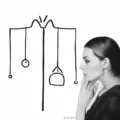Understanding Ourselves With Compassion
The concept of locus of control refers to how much influence we believe we have over our own lives. Those with an internal locus of control generally feel in control of their destiny. Those with an external locus of control believe that external factors outside their influence determine outcomes.
Rather than judging ourselves or others, it may be helpful to approach this topic with compassion. Our experiences shape our perspectives, often in nuanced ways. By listening deeply, we can better understand one another despite differences.
Assessing Our Perspectives
The locus of control assessment scale attempts to gauge where people fall on this spectrum of internal to external perceived control. However, these metrics offer limited insight. They cannot capture the richness of individual experiences.
With open and non-judgmental self-reflection, we can gain clearer insight into our own perspectives. The stories and struggles of others may also elucidate new dimensions we had not previously considered.
Cultivating Agency with Compassion
Rather than aiming for an extreme internal locus of control, we might thoughtfully cultivate personal agency while maintaining compassion for external circumstances outside our control.
Life presents each of us with unique constraints and opportunities that shape our paths. With patience and courage, we can expand the boundaries of our own agency to achieve more self-directed and purposeful lives.
FAQ
What is locus of control?
Locus of control refers to our perception of personal control and influence over life outcomes. An internal locus attributes outcomes to our own agency, while an external locus attributes outcomes to outside forces.
What are some examples of internal and external locus of control?
Examples of internal locus include believing you control your happiness or career success through personal effort. External locus involves believing luck, chance or powerful others control outcomes.
How is locus of control assessed?
Locus of control assessment utilizes self-report questionnaires and scales to ascertain where someone sees themselves on a spectrum from extremely internal to extremely external perceived control.
How can understanding locus of control be helpful?
Insight into perceived control can foster deeper self-awareness and self-compassion. However, rigid judgments should be avoided, as most people experience nuanced and shifting perspectives over time and contexts.
How can I cultivate a healthier locus of control perspective?
Through open and thoughtful self-reflection, you can expand your self-awareness and gently nurture a locus of control that empowers you to direct your own life path with compassion for external circumstances outside your influence.









